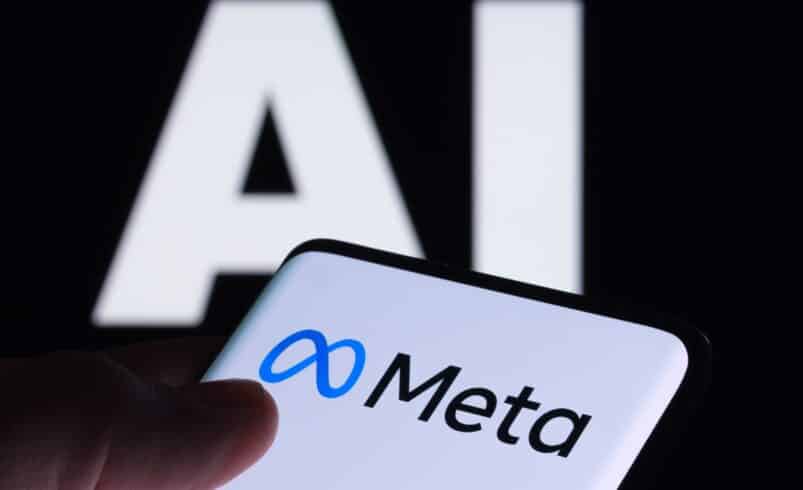Meta AI Chief Yann LeCun Says LLMs Will Not Achieve Human Intelligence

Key Insights
- Yann LeCun challenges the potential of large language models, stating they can’t reason or plan like humans.
- Meta’s new AI approach, “world modeling,” aims to develop AI with human-like common sense and understanding.
- Despite skepticism, Meta invests heavily in both short-term LLMs and long-term AI research to achieve human-level intelligence.
Yann LeCun, Meta’s chief AI scientist, recently stated that large language models (LLMs) like those powering generative AI tools, such as ChatGPT, will not achieve human-level reasoning and planning. LeCun emphasized that current AI methods are fundamentally flawed and limited in scope. He advocates for a different approach, focusing on developing AI with a deeper understanding of the world.
Limitations of Large Language Models
LeCun pointed out several critical limitations of LLMs. These models, according to him, lack a real understanding of logic and the physical world. They do not possess persistent memory or the ability to plan hierarchically. Although LLMs can generate coherent text based on extensive training data, they cannot reason in a manner comparable to human beings.
Despite their widespread use, LeCun believes LLMs can only answer prompts accurately when they have been trained on the relevant data. This dependency on predefined training makes them “intrinsically unsafe,” as they do not develop conclusions organically.
LeCun proposes an alternative approach called “world modeling.” This method aims to create AI systems that develop common sense and understand the world similarly to humans. He believes this approach could take around a decade to achieve but holds the potential for more robust and intelligent AI systems.
Meta has invested heavily in AI development, striving to catch up with rivals like OpenAI and Google’s DeepMind. However, LeCun remains focused on long-term goals, refocusing Meta’s Fundamental AI Research (Fair) lab towards achieving human-level AI. His team is exploring different ideas and methodologies to realize this vision, including training AI systems to predict events by observing video footage.
Challenges and Criticisms
LeCun’s vision is not without skepticism. Some experts question the feasibility of his approach. Aron Culotta, associate professor of computer science at Tulane University, mentioned that teaching models of causality and common sense has always been challenging. He pointed out that AI systems remain prone to unexpected failures due to their lack of understanding of real-world contexts.
Internally, there are differing opinions about Meta’s AI research direction. Some former and current employees express doubts about the practicality and clarity of LeCun’s world modeling approach. They argue that the Fair Lab has yet to establish itself as a significant rival to leading AI research groups like DeepMind.
In response to the growing importance of generative AI, Meta created a new GenAI team in early 2023. Led by Chief Product Officer Chris Cox, this team focuses on the development and commercial application of LLMs. The GenAI team has integrated its latest model, Llama 3, into various products, such as AI assistants and image generation tools.
While the GenAI team aims to deliver immediate commercial applications, LeCun’s Fair lab is dedicated to longer-term research. He remains a key adviser to Meta’s CEO Mark Zuckerberg, given his extensive experience and reputation in the field of AI. LeCun’s contributions, including his work on neural networks, have earned him recognition and awards, underscoring his influence in AI research.
Future Directions in AI
Meta’s ambitious AI strategy involves significant investments and a dual approach: advancing LLMs for immediate applications while pursuing long-term breakthroughs in AI understanding. LeCun’s team is experimenting with various techniques to enhance AI’s capability to learn and reason. These include feeding systems with video data and developing a universal text encoding system to process knowledge across different media.
LeCun envisions future AI agents with human-level intelligence that can interact seamlessly with users through wearable technology. This includes augmented reality or “smart” glasses and electromyography (EMG) bracelets. According to LeCun, these advanced AI agents would require a deep understanding of the world to be genuinely useful.
The path to achieving this level of AI intelligence is fraught with challenges and uncertainties. However, LeCun remains optimistic about the potential of world modeling to revolutionize AI. While Meta continues to advance its LLM capabilities, the pursuit of more profound, human-like intelligence remains a cornerstone of its AI research efforts.
Editorial credit: Ascannio / Shutterstock.com
DISCLAIMER: It's essential to understand that the articles on this site are not meant to serve as, nor should it be construed as, advice in legal, tax, investment, financial, or any other professional context. You should only invest an amount that you are prepared to lose, and it's advisable to consult with an independent financial expert if you're uncertain. To obtain more information, kindly examine the terms of service and the assistance and support resources made available by the issuing or advertising entity. Our website is committed to delivering accurate and unbiased news, yet it's important to note that market conditions may change rapidly. Also, be aware that some (but not all) articles on our site are compensated or sponsored.








